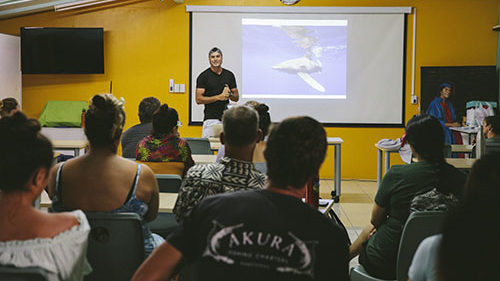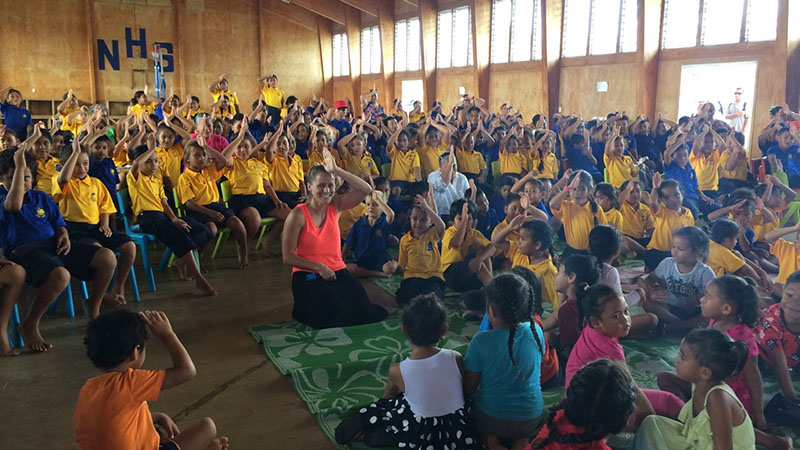
Without local buy-in, none of this works, plain and simple.
Conservation and management of sharks and the greater ocean are really about managing people. We weren’t the first people to say this, but we strongly believe it. Because people are the community leaders, the scientists, the managers and the decision-makers. Equally importantly, people will protest and push back when something they care about is at stake. But first, they have to care.
 We’re a mixed bag here at Sharks Pacific. We are locals and expats, scientists, fishers, managers, lawyers, artists, politicians, moms, granddads, waitresses, musicians, advocates, writers and everything in between. Our team already cares, so we are looking for ways to work smarter. The best way to do that, for sharks anyway, is to get more people interested in our work and more hands willing to pitch in, especially in each of the villages, islands and countries where we work.
We’re a mixed bag here at Sharks Pacific. We are locals and expats, scientists, fishers, managers, lawyers, artists, politicians, moms, granddads, waitresses, musicians, advocates, writers and everything in between. Our team already cares, so we are looking for ways to work smarter. The best way to do that, for sharks anyway, is to get more people interested in our work and more hands willing to pitch in, especially in each of the villages, islands and countries where we work.
We need people to help research, design and push for the policies that matter to them and, more importantly, to push back when they aren’t accepted or implemented properly. We want people, especially those not onboard, to be interested enough to hear our ideas and open enough to share theirs.
This all starts with reaching out, which we conduct in person and digitally through presentations, one on one meetings, school visits, barbeques, multinational gatherings and more. We present the facts and the fun, but we believe that if we use high quality, visually compelling media tools, that you may be more inclined to pay attention – maybe even inspire you to care.

We are also committed to raising the scientific literacy of anyone who visits our website, booth, presentation, or asks us what we do and why we do it. Importantly, we’re working to increase the number of Pacific Islanders doing the talking and the science-ing because frankly, there are not enough Pacific Islanders in marine science and we think that’s got to change!
Through working alongside Sharks Pacific, we give Pacific Islanders practical marine science experience conducting shark research, while talking through the nuances of responsible conservation and management. It’s imperative that we not only inspire the public, the policymakers and the politicians, but that we encourage and train the next generation.